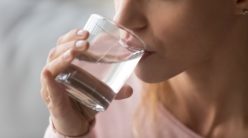If you’re lucky enough to own a pool, it’s imperative that you diligently take good care of it to keep it looking clean, refreshing, and always ready for use. If you do not have a pool yet and are thinking of building a swimming pool, here is a list of maintenance tips that are guaranteed to save you from making mistakes down the road.
The Tips…
Routine maintenance will go a long way in reducing unnecessary costs on your swimming pool and will ultimately save you a lot of time, hassle, and money. Here is a list of 10 tips for keeping your pool sparkling:
- Always check the pool chemistry about twice a week in summer and at least once in winter. The pH should be between 7.2 and 7.8. A high value is an indication that your pool needs more chlorine. If you control the pH properly, you will end up using much less chlorine.
- Clean out the skimmer basket on a weekly basis, or more regularly if need be. The basket’s main job is to skim the surface of any debris and contaminants before they get to the bottom of the pool.
- Clean the hair and lint pot which is located on the entrance of the pool pump. To clean it, first turn off the pump and release pressure from the system. Make sure you do this every couple of weeks.
- Check if the water level is too high or too low. The water needs to be at optimum levels for better performance of the pump and the skimmer. If the water is too low it might cause the pump to run dry and burn up. Also, if the water is too high, the skimmer door that keeps the debris inside the basket might not work properly.
- Clean the filters regularly to allow for maximum flow and minimal wastage. It’s recommended that you clean them every 4 to 6 months. To do this, soak them in 10% muriatic acid or alternatively, use Trisodium Phosphate. After that, rinse until they’re clean and then air them out to dry.
- Clean the tile line by wiping it on a weekly basis to reduce build up. A high pH will cause the water to readily form deposits. If you maintain the pH at 7.2, the scum line will barely develop.
- When the chemicals are not in use, always store them in a cool, dry place, and away from direct sunlight.
Note: Don’t store chlorine right next to acids.
- Immediately you see any cracks around the pool, caulk it with a small bead of clear silicone. Do not allow the water from the pool to migrate under the deck though these cracks as this creates huge problems in the future.
- Keep away chemicals such as fertilizers and animals such as birds away from the pool. Bird’s droppings and other animal wastes have nitrates which act as food for the algae.
- Keep all the gates and protective barriers locked to make sure that children do not come to play by the pool. Safety should always be your number one priority.





